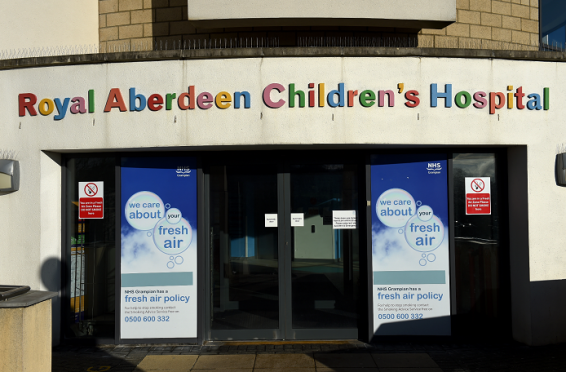The north-east has been at the heart of medical advances since the creation of the National Health Service 70 years ago today.
Whether in the pioneering of MRI scanners by Professor John Mallard or the ongoing efforts by Aberdeen-based NovaBiotics to devise new drugs to tackle superbugs, there has been a constant determination to keep making advances in health.
And Professor Amanda Croft, the acting chief executive of NHS Grampian, has no doubt about the progress which has happened since July 5, 1948.
Indeed, she has reflected on the challenges, past and present, in the latest edition of the health authority newspaper, Upfront.
She said: “Working for the NHS can be challenging at times, as we seek to deliver the very best service we can, while also providing good value for the public purse.
“It can feel like we face criticism at every turn and nothing we can do is good enough.
“However, the health service has weathered these storms for 70 years to become a cherished institution.
“I have enjoyed reading stories from long-serving staff members and these made me reflect on my own training. I started my NHS career as a nursing auxiliary back in 1986 and I remember vividly how nervous I was on my first day.
“I went on to do my nurse training, qualifying in 1991, and I thoroughly enjoyed the experience, even though some of the sisters and matrons were quite formidable.”
There was certainly no shortage of rules and regulations in the early days of the NHS, even as the medical staff found themselves dealing with such unusual incidents as the typhoid epidemic which struck Aberdeen in 1964 and led to major quarantines across the city.
Just a year later, Liz Norris left home to start her training at the Royal Hospital for Sick Children at Yorkhill in Glasgow. She later became a staff nurse at the Royal Aberdeen Children’s Hospital, but only after negotiating the strictures of staying in the Nurses’ Home.
As she recalled, there was nothing swinging in the 60s for the staff. She said: “They had to be in every night by 10pm, unless in possession of a late pass, which was only valid once a week.
“It was lights out at 11pm, with the rising bell ringing at 7am. There was a roll call in the dining room at breakfast, to ensure everybody on duty had actually got up.
“No males were allowed in your room, with male visitors only allowed in the sitting room if chaperoned by a Home Sister – an opportunity I never remember anybody taking up.”
Ms Norris has subsequently enjoyed a distinguished career. In 1998, she completed an MSc in Advanced Nursing at Aberdeen University and was one of the first people from Grampian to graduate with this qualification.
In 2000, she swapped her uniform for a hard hat and high-viz jacket when she was appointed commissioning nurse for the new RACH.
Similar dedication has been shown by so many staff down the decades, including Aileen Mitchell, who used to work at the old City Hospital in the field of medical microbiology.
As she recalled: “In these days, the reports were hand typed and put into envelopes, addressed by use of stencils.
“Every report was sent out with a new replacement test kit for urine or faeces and the push was always on to get it done by 5pm, so you could catch the 5.10 bus on Urquhart Road, because you couldn’t leave until it was done.
“We’ve since moved through decades of inputting data. The actual testing has meant the microscope being often replaced by automation and DNA has meant huge changes, which will continue to evolve long after I am retired.
“But there were lots of happy memories made in those far-off days when a mouse would have made you scream if you found it on your desk.”
